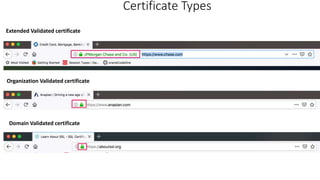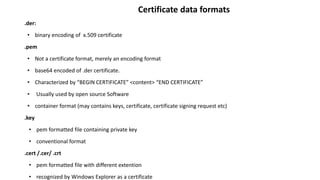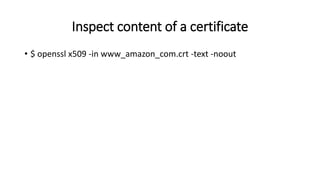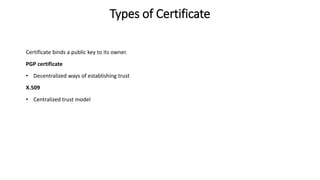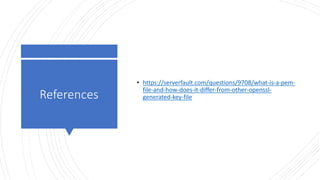digital certificate - types and formats
- 1. Digital Certificate- Formats & Types
- 2. Certificate Types Extended Validated certificate Organization Validated certificate Domain Validated certificate
- 3. Certificate data formats .der: • binary encoding of x.509 certificate .pem • Not a certificate format, merely an encoding format • base64 encoded of .der certificate. • Characterized by “BEGIN CERTIFICATE” <content> “END CERTIFICATE” • Usually used by open source Software • container format (may contains keys, certificate, certificate signing request etc) .key • pem formatted file containing private key • conventional format .cert /.cer/ .crt • pem formatted file with different extention • recognized by Windows Explorer as a certificate
- 4. Inspect content of a certificate • $ openssl x509 -in www_amazon_com.crt -text -noout
- 5. Types of Certificate Certificate binds a public key to its owner. PGP certificate • Decentralized ways of establishing trust X.509 • Centralized trust model


